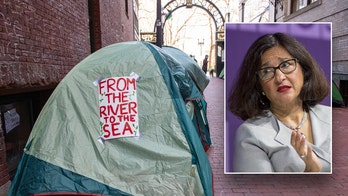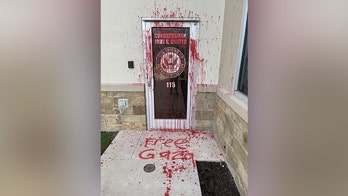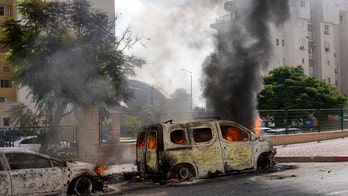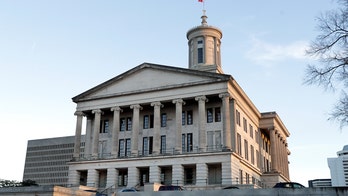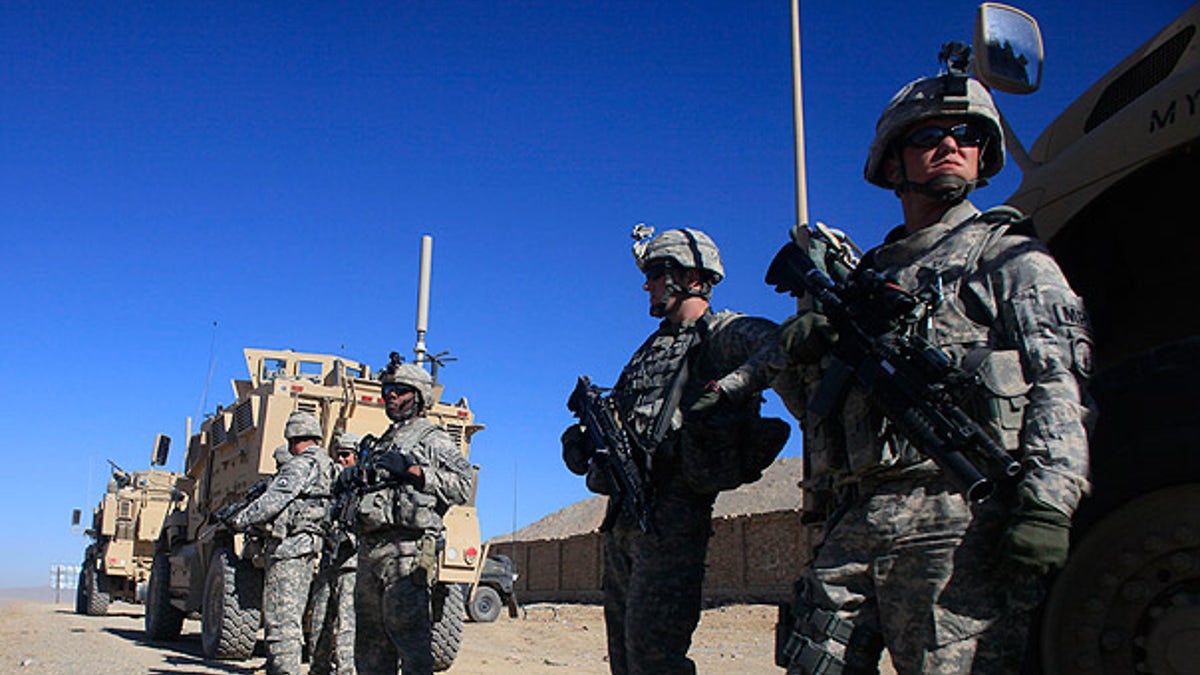
Nov. 19: U.S. Army soldiers stand next to their vehicles at a checkpoint near the town of Balisal Afghan, Afghanistan. (AP) (ap)
President Obama is expected to announce Tuesday an additional 30,000-35,000 U.S. troops to Afghanistan, which reportedly may start with 9,000 Marines being deployed to southern Afghanistan followed by 1,000 Army trainers in February.
The Washington Post reported Sunday that final preparations for the 9,000 Marines will commence as part of a deployment aimed at Helmand province, where the Taliban stronghold has been partly gutted by an additional 10,000 Marines sent earlier this year.
"The first troops out of the door are going to be Marines," Gen. James T. Conway, the Corps' top officer, told Marines in Afghanistan on Saturday, according to the newspaper. "We've been leaning forward in anticipation of a decision. And we've got some pretty stiff fighting coming."
Obama is expected to announce on Tuesday his new strategy for the eight-year-old conflict in Afghanistan. Speaking at the U.S. Military Academy at West Point, N.Y., the president is expected to call for 30,000 to 35,000 new troops to be deployed over the next 12 to 18 months.
Sen. Evan Bayh, D-Ind., said additional NATO troops are likely to make up the difference between the number Obama will authorize and the 40,000 requested by Gen. Stanley McChrystal, the top commander on the ground.
Bayh said he is "going to trust the tactical judgment" of Defense Secretary Robert Gates on the appropriate force size, and that Obama and Gates "have to show some deference to the military commander," but McChrystal's suggestions "are just recommendations, they are not the Ten Commandments."
Bayh, who was on "Fox News Sunday," and Sen. Lindsey Graham, R-S.C., who appeared on ABC's "This Week," both said that U.S. national security depends on getting it right in Afghanistan.
But Obama may find objections from within his own party as the chairman of the Senate Armed Services Committee, said Sunday that increasing the size of the Afghan security forces outweighs tamping down an insurgency with U.S. military might.
Levin said its unclear to him what role tens of thousands additional combat troops will play.
"The key here is an Afghan surge, not an American surge," Levin said. "We cannot, by ourselves, win (the) war."
On the other side of the aisle, the speed of deployment worries Sen. Jon Kyl, R-Ariz., who said Sunday that a phased deployment will not force rapid change as the surge in Iraq did and will create more problems, as Vietnam demonstrated.
"You need to put in everybody you can as quickly as you can and deliver a knockout punch to the enemy," Kyl told "Fox News Sunday."
Bayh said that while he'd like to get troops on the ground as quickly as possible, the Afghan infrastructure also must be able to absorb them.
Supporters of a phased deployment say it will allow Obama to determine whether the counterinsurgency strategy proposed by McChrystal is working, as well as whether the Afghan government -- and Pakistani government, which is battling Taliban in its northeast region -- are doing their part in battering terrorist insurgents while also meeting goals of tamping down corruption and building up their own military and police forces.
But opponents of the war, including Sen. Bernie Sanders, I-Vt., say the cost of Afghanistan is too heavy a price for the United States, particularly since China and Russia are not helping.
"You've got to put Afghanistan in the context of what is happening in the United States today," Sanders said on ABC's "This Week," adding the U.S. recession is deep and the gap between rich and poor in the U.S. continues to grow.
"So I've got a real problem on expanding the war when the rest of the world is saying isn't it a nice thing that the U.S. taxpayer" is carrying the burden, Sanders said.
Graham said he'd be happy for Congress to engage in exercises on how to reduce the cost of war spending, but Bayh and Kyl said it's not the time to discuss a war tax, as was suggested by Levin, D-Mich., and House Appropriations Committee Chairman David Obey, D-Wis.
"We have to provide for the nation's security regardless of our finances," said Bayh, adding that raising taxes during a recovery is not good economics.
Bayh and Kyl agreed that it is premature to discuss an exit strategy. Kyl said it sends a signal to allies and enemies that the United States is only marginally committed. However, Bayh said he wants a strategy to include the message to the Afghans and Pakistanis that "we're here for the duration as long as you're doing your part."
Already European leaders are planning a Jan. 28 meeting in London to discuss progressively handing over security of Afghanistan to the Afghans in order to reduce the number of NATO forces. At the same time, British Prime Minister Gordon Brown said he'd be willing to send an additional 500 British troops if the Karzai government shows progress against corruption.
National Security Council spokesman Mike Hammer said Saturday the conference is an opportunity to build on a meeting in Brussels at the end of the week to determine the role of the coalition countries in Afghanistan in helping security transition, governance, economic development and reconciliation.

